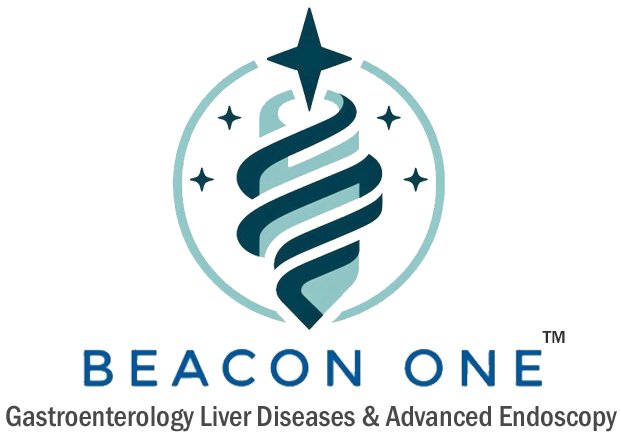Precision Inside: Unveiling the Power of Endoscopic Ultrasound (EUS) in Nagpur
In the vibrant city of Nagpur, accessing advanced medical diagnostics is essential for effective healthcare. Among the cutting-edge technologies available, Endoscopic Ultrasound (EUS) stands out as a remarkably powerful tool, providing physicians with a unique and detailed view of the digestive tract lining and surrounding organs. This innovative procedure, readily available through expert Gastroenterologists and Endoscopy Specialists in Nagpur, combines the strengths of two key imaging modalities: Endoscopy and ultrasound.
What is Endoscopic Ultrasound (EUS)?
Endoscopic Ultrasound (EUS) is a specialized type of Endoscopy that integrates a miniature ultrasound probe at the tip of a flexible endoscope. This allows the physician to not only visualize the inner lining of the gastrointestinal tract (esophagus, stomach, duodenum, rectum) but also to generate detailed ultrasound images of the structures and organs located just outside the GI wall. Think of it as giving the endoscope “sonar vision” to look beyond the surface.
How EUS Works: The Fusion of Two Technologies
During a standard Endoscopy, a camera provides a direct visual inspection of the mucosal lining. EUS takes this a step further. The ultrasound probe at the end of the endoscope emits sound waves that bounce off nearby tissues and organs, creating detailed cross-sectional images. Because the ultrasound probe is positioned within the digestive tract, it is much closer to the organs of interest (like the pancreas, bile ducts, lymph nodes, and surrounding blood vessels) than traditional external ultrasound, resulting in higher resolution and more precise images.
Unlocking Diagnostic Insights with Endoscopic Ultrasound (EUS) in Nagpur
Endoscopic Ultrasound (EUS) is a valuable diagnostic tool used to evaluate conditions that may be difficult to assess with other imaging techniques like CT scans or MRI. Its ability to provide highly detailed, localized images makes it particularly useful for:
- Staging Cancers: EUS is excellent for determining the depth of invasion of cancers of the esophagus, stomach, rectum, and pancreas, as well as assessing whether cancer has spread to nearby lymph nodes. This information is critical for guiding treatment plans.
- Evaluating Pancreatic and Biliary Diseases: EUS provides unparalleled views of the pancreas and bile ducts. It is frequently used to investigate the cause of pancreatitis, detect and characterize pancreatic cysts and solid masses, and identify bile duct stones or strictures, which can be linked to Liver Diseases.
- Assessing Subepithelial Lesions: These are growths located beneath the inner lining of the GI tract. EUS can determine their size, origin, and characteristics, helping to distinguish between benign and potentially malignant lesions.
- Investigating Abnormalities Seen on Other Imaging: When a CT scan or MRI reveals a suspicious finding near the GI tract, EUS can provide a closer, more detailed look to help clarify the diagnosis.
Beyond Diagnosis: Therapeutic Capabilities of EUS
In addition to its diagnostic power, Endoscopic Ultrasound (EUS) allows for minimally invasive therapeutic interventions:
- Fine Needle Aspiration (FNA) and Fine Needle Biopsy (FNB): Under direct EUS guidance, a thin needle can be passed through the endoscope wall to obtain tissue or fluid samples from suspicious lesions in the pancreas, lymph nodes, or other nearby structures. This is crucial for obtaining a definitive diagnosis (e.g., confirming cancer).
- Cyst Drainage: Pancreatic pseudocysts or other fluid collections can be drained under EUS guidance, providing symptom relief.
- Celiac Plexus Block/Neurolysis: For patients with severe pain from chronic pancreatitis or pancreatic cancer, EUS can be used to guide injections that block pain signals.
The Specialists Performing Endoscopic Ultrasound (EUS) in Nagpur
Performing Endoscopic Ultrasound (EUS) requires specialized training and expertise. In Nagpur, this advanced Endoscopy procedure is carried out by experienced Gastroenterologists and Endoscopy Specialists who have undergone additional training in EUS techniques. Their skill in manipulating the echoendoscope and interpreting the complex ultrasound images is essential for accurate diagnosis and safe interventions.
A Hepatologist, specializing in Liver Diseases, may collaborate with the Gastroenterologist or Endoscopy Specialist when EUS is used to evaluate conditions like bile duct blockages that can impact liver function.
Accessing Endoscopic Ultrasound (EUS) in Nagpur
Fortunately, this advanced diagnostic and therapeutic capability is accessible in Nagpur. Several hospitals and clinics in the city are equipped with the necessary EUS technology and have skilled Gastroenterologists and Endoscopy Specialists who perform these procedures. If your doctor recommends an Endoscopic Ultrasound (EUS), they can guide you to a facility in Nagpur that offers this service.
Preparation and Recovery
Like other endoscopic procedures, EUS requires some preparation, typically including fasting for several hours beforehand. The procedure is usually performed under sedation to ensure your comfort. After the EUS, you will be monitored in a recovery area until the sedation wears off. You may experience a mild sore throat or bloating, which are usually temporary.
Endoscopic Ultrasound (EUS) in Nagpur represents a significant advancement in the field of Endoscopy, providing unparalleled imaging detail of organs surrounding the digestive tract and allowing for crucial diagnostic and therapeutic interventions. If you require a detailed evaluation of conditions affecting your pancreas, bile ducts, or other structures near your GI tract, discuss the benefits of Endoscopic Ultrasound (EUS) with your Gastroenterologist or Endoscopy Specialist in Nagpur. It’s a powerful tool in the fight against various digestive and related Liver Diseases.

